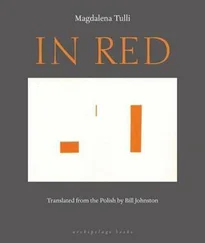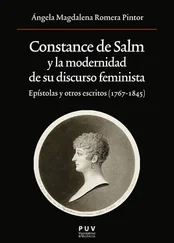Magdalena Tulli - Flaw
Здесь есть возможность читать онлайн «Magdalena Tulli - Flaw» весь текст электронной книги совершенно бесплатно (целиком полную версию без сокращений). В некоторых случаях можно слушать аудио, скачать через торрент в формате fb2 и присутствует краткое содержание. Год выпуска: 2007, Издательство: Archipelago Books, Жанр: Современная проза, на английском языке. Описание произведения, (предисловие) а так же отзывы посетителей доступны на портале библиотеки ЛибКат.
- Название:Flaw
- Автор:
- Издательство:Archipelago Books
- Жанр:
- Год:2007
- ISBN:нет данных
- Рейтинг книги:5 / 5. Голосов: 1
-
Избранное:Добавить в избранное
- Отзывы:
-
Ваша оценка:
- 100
- 1
- 2
- 3
- 4
- 5
Flaw: краткое содержание, описание и аннотация
Предлагаем к чтению аннотацию, описание, краткое содержание или предисловие (зависит от того, что написал сам автор книги «Flaw»). Если вы не нашли необходимую информацию о книге — напишите в комментариях, мы постараемся отыскать её.
Flaw — читать онлайн бесплатно полную книгу (весь текст) целиком
Ниже представлен текст книги, разбитый по страницам. Система сохранения места последней прочитанной страницы, позволяет с удобством читать онлайн бесплатно книгу «Flaw», без необходимости каждый раз заново искать на чём Вы остановились. Поставьте закладку, и сможете в любой момент перейти на страницу, на которой закончили чтение.
Интервал:
Закладка:
In the opposite corner of the room, the student is leafing through the local newspaper in search of anything he can find about the disturbances whose recent memory fills him with pride. The fracas blew like a storm through the central districts of the city, passing by at a distance the glass display case containing the cakes and sparing it. No one here saw these disturbances, and thus they had as much meaning as the notary’s office, about which it can only be said that somewhere or other it probably exists. The memory of the affray fell to the student’s lot, along with the metal emblem pinned to his lapel. Without confirmation in the form of broken glass crunching underfoot, without store windows boarded up to deter looting, accomplished facts carried little value. To become reality, they needed suitably dramatic descriptions and the necessary lofty tone. Anger is a symptom of distress and so requires pathos.
But whose distress are we talking about? This question might be asked by the owners of the broken windows, who know only their own worries, because after all they are the ones who will pay for new windowpanes. The answer is precisely the distress that comes from overly tight sleeves, seams digging into tender flesh, pants that are too short, a frayed buttonhole. But when the towering wave of anger comes along, among those it sweeps away there are always a handful of well-dressed figures. The wave will lift up highest of all precisely those whom fate has favored from the beginning. Those whose jackets lie on them as if custom-made, and whose underwear even is no disgrace. Unencumbered by the comicality that blights the lives of many, the student is at ease in his jacket with the emblem pinned to the lapel. Unfortunately though, his pride is tinged with bitterness. More could be explained by a family photograph. To understand what it was all about, it would suffice to notice the hang of his father’s cheap Sunday suit. His upbringing was patriotic but his soups were watery, and for supper it was bread and jam. One should also know about the pain of humiliation when, before the honest gaze of steel gray eyes the color of the best lamb’s-wool sweater, the more imposing doors slam shut.
If I am the student, I believe that what’s needed is to abandon unnecessary scruples and to strike at whatever is unshapely and badly made; it should be swept away and burned without so much as a by-your-leave, so as to bring order. And also to restore the world’s pure glow, by the light of which the virtues of true perfection will finally be able to shine. In the meantime, consoled by a mug of beer on an empty stomach and reasonably satisfied with the newspaper reports, whose tone has the strained quality of breaking glass, he ordered bacon and eggs for breakfast. He belched once and twice, and the remainder of the thoughts that had previously lain heavy on his stomach were given release. Rising over the table, they acquired the agreeable silkiness of cigarette smoke. On one side of the student was the notary, whose thoughts to the contrary dropped heavily to the floor, where they snaked about beneath the tables. On the other side, his head empty, sat the photographer who owned the studio across the square. He was drumming his fingers on the tabletop and staring at the outdoor space crammed into the rectangle of the window frame like a thin and slightly dusty white passe-partout. He was frowning and narrowing his eyes. The city landscape outside the window, it seemed, still lacked sufficient depth of field.
Meanwhile, the matter that just a moment before had caused so much disquiet made itself felt again: the phone rang a second time. In the conversation with the broker few words were exchanged, and on the notary’s end these were mostly monosyllables. The subject of the conversation was a sudden drop in stock prices across the board, while the Swiss franc had moved decidedly upward. The cause was a political crisis of a catastrophic nature; this was last-minute news too recent to be in the morning papers. The higher the Swiss franc rose, the less was paid for the banknotes in rainbow colors that were the national currency and that one ought to stick with out of a sense of patriotic duty. The trading tables, however, indicated that everyone was racing to get rid of them. And this was only the beginning. In the next couple of hours all the prices on the stock market, including those of real estate, threatened to collapse. It would be the kind of event succinctly known as a crash. This most unpleasant-sounding word was repeated twice. Though of course conditionally, without absolute certainty. Then what shall we do? Shall we sell or shall we hold out awhile, counting on a recovery? This question, on the face of it extremely simple, forced a hurried choice between hope and common sense. It was not easy to deliver the answer. The notary cleared his throat twice before he bid farewell to hope and made all the sensible decisions. Afterwards, he wiped his forehead with a handkerchief and stared unseeingly into space.
In the passe-partout of the window, images of confusion appeared. Passers-by were carrying loops of sausage, slabs of bacon, and sacks of flour or sugar or potatoes. Their eyes glistened. Here and there, groups of grammar school boys elbowed their way through, the same unhealthy gleam in their eyes; because of the unusual political situation, they had been sent home. The notary’s son was among them; he came briefly into view in the crowd, right in front of the café window. Drifting with the flow, his glasses misted over, he swept by and vanished, already hidden by those following behind. Above the noise of the street, which was louder than usual and swelling like a fever, there rose the hoarse voice of a newsboy, and the first copies of a special edition appeared in people’s hands. The waiter was sent out for the paper; before he returned, the piercing yelp of a dog was heard, and a police whistle rent the air. The newsboy — a teenager in short pants who was the son of the washerwoman — shot out of the throng and fled as fast as his legs would carry him, though no one was chasing him. But the conundrum of these events was nothing compared to the conundrum of the general situation; the contents of the special edition of the newspaper, which the waiter finally deposited on each of three tables, seemed incomprehensible.
Even when the three guests read the headlines to one another across the café, things were scarcely any clearer. The analyses printed in the paper were fraught with contradictions. And since everything had been turned upside down, the waiter permitted himself in a lisping voice to add his two humble cents’ worth to the brief dialogue that developed among the tables, because he knew he was not the loser here. In his pocket he had some loose change — to be precise, three coins he had been given by the guests and had kept for himself, pleased that in the general confusion he had gotten the newspapers for free. Determined above all to look after number one, he was counting on being given the day off: any minute now the proprietor would call and tell him to close the café for the day. The student too seemed to be observing the commotion on the square through the window of the café. In fact, though, he was looking higher up, gazing over the throng at the still sky, which was a promising blue without a single cloud.
An icy chill on the back of the notary’s neck reminded him it was too late for anything now. His skin prickled, and a moment later he felt a pain in the vicinity of his heart. So he returned home, dragging his feet. On the stairs he stopped at every few steps and clung tightly to the balustrade. When he finally made it to the second floor, he ought to have said at least a word to his alarmed wife. But he lacked the strength; he merely took a wad of banknotes from his wallet and ordered the maid to stockpile supplies. Then, for the longest time he fiddled with the dials of the radio. Other than commentaries from far off in foreign languages, eloquent and uninformative, he found nothing but hissing and crackling. If I am the notary, by now everything has started to bother me. My shoes pinch, my collar chafes against my neck, and the daylight dazzles me. I pull down the blinds and turn on the night-light. The new turn of events, which might have seemed unexpected, had in fact for weeks and even months been in the background as an unpalatable but likely possibility. As frequently happens, life had gone calmly on, right alongside a particularly ominous eventuality. If it only failed to materialize as fact, the cost of precautionary steps taken against it would afterwards seem excessive, and the immoderate, pathetic decisions made by the notary would be said to have been driven by panic. Yet what if, on the contrary, with the passage of time it transpires that the greatest and most unforgivable error was a lack of caution? Whatever course of action one takes, one always emerges either a spineless prevaricator safeguarding himself from the worst or an irresponsible risk taker; it’s terribly hard to avoid extremes, not because of a person’s own nature but because life is so poorly balanced. The burden of responsibility for the well-being of oneself and one’s family is the burden of questions without answers. It all arises from the fact that in matters of the greatest weight, only guessing is possible. Up till yesterday certain special ways out were still available; certain loopholes were still open for those most worried. Now, however, they have suddenly been closed, slamming shut all at once with a thud. And in this way the notary and his family have found themselves in a trap.
Читать дальшеИнтервал:
Закладка:
Похожие книги на «Flaw»
Представляем Вашему вниманию похожие книги на «Flaw» списком для выбора. Мы отобрали схожую по названию и смыслу литературу в надежде предоставить читателям больше вариантов отыскать новые, интересные, ещё непрочитанные произведения.
Обсуждение, отзывы о книге «Flaw» и просто собственные мнения читателей. Оставьте ваши комментарии, напишите, что Вы думаете о произведении, его смысле или главных героях. Укажите что конкретно понравилось, а что нет, и почему Вы так считаете.












